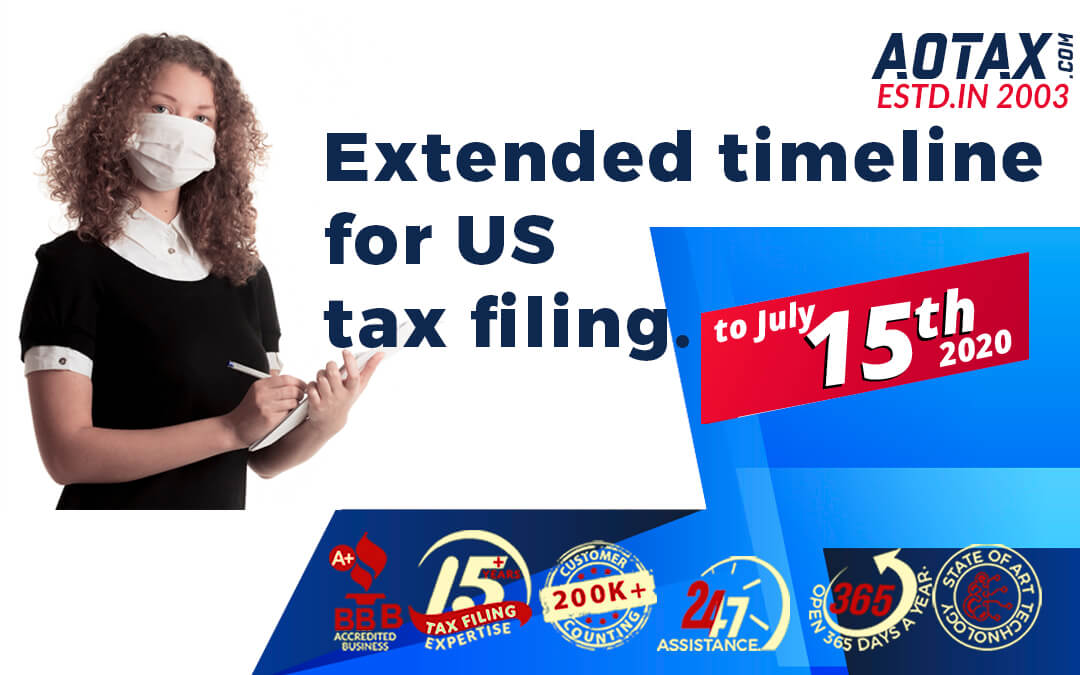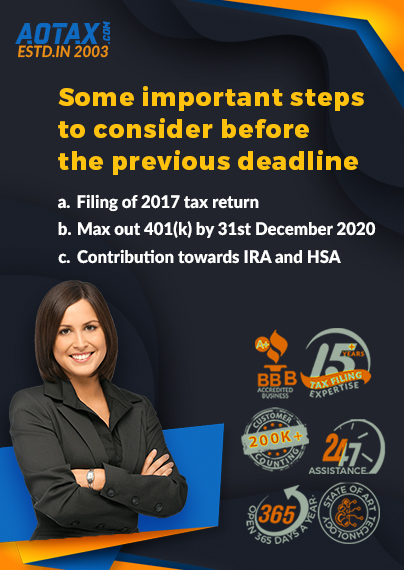
How to File a Personal Tax Extension in the US in 8 Easy Steps?
Do you need to travel outside the US this April? Are you short on time to file your federal tax returns? Then it would be a good idea to file a personal tax extension with the IRS. If you are an Indian in the US who is unsure to file a personal tax extension, we can help you.
Our easy 8-step guide will walk you through the process on how to file a tax extension in eight easy steps.
But, first things first.
What Is Personal Tax Extension Form 4868?

The deadline to file federal taxes in the United States is April 15. However, many people are unable to meet the deadline due to various reasons. In this scenario, one can fill out Form 4868 to file a personal tax extension. However, you have to submit this form to the IRS (Internal Revenue Services) before the due date. This will let you avail a six months extension till October 17 to file your income tax returns (ITR).
However, this extension is on filing the ITR and not on the tax payment. You will be required to make the income tax payment by April 15. Failing to do so will attract penalties. Moreover, this form is to be filled by individuals and not by businesses or corporations.
Recommended: Indians in the US must file taxes irrespective of their immigration status – AOTAX.COM
Documents needed:
Form 4868 is available on the IRS website. You will need the following details to complete the form:
- Your social security number (and your spouse’s too if filing a joint return)
- Address
- Estimate of tax liability for the year
- Taxes already paid (tax withheld by an employer)
- Calculation of deductions and credits
Where to file?
Filing a personal tax extension is easy, free, and convenient. One can file it electronically on the IRS website. Or print a form from the website, fill in the requisite details and mail it to the IRS directly.
How To File A Personal Tax Extension?

Filing a personal tax extension may sound more difficult than it is. But it is convenient if done before the due date. Here is a guide to help you file a personal tax extension:
1. Electronically
You can use IRS Free-file (IRS Free File | Internal Revenue Service)to file a personal tax extension via form 4868. Once you fill in the required information and make the tax payment, you will receive an acknowledgment from the IRS. Keep it as a record to submit it in October when you file your returns. One can use Free File to file form 4868 if their adjusted gross income is under $73,000 for the last financial year. If your income is above the threshold, opt for the IRS Fillable Forms tool(Free File Fillable Forms | Internal Revenue Service (irs.gov) to file for a personal extension. Your tax preparer can also help you with it.
2. Mailing A Tax Extension Request
If you are planning to send your request for a personal tax extension by mail, print form 4868 from the IRS website. You can also get the form from your local post office or the IRS.
Fill in the details, attach your tax payment check, and mail it to the IRS. Snail mail takes time, so rather than waiting until April, do it now.
3. Tax Payment
Form 4868 buys you more time to file your taxes. However, this does not defer your payment till October. One is required to pay their dues by April 15. Hence, you can pay a portion or all of your taxes online through a debit or credit card, or DirectPay. You can also mail a check or send a money order to the ‘United States Treasury’ along with your form 4868.
4. Special Tax Payment Extensions
Certain individuals get an automatic 60 days extension on filing and payment of their ITR. These are citizens or resident aliens of the United States who live outside of the United States or Puerto Rico. They could be serving in the military or on the naval outside of the United States or Puerto Rico.
Similarly, those in the Armed forces working in combat zones in or outside the US also get 180 days tax payment extension. All the above-mentioned individuals should explain the reason for the delay when they file their returns. However, if you owe taxes to the IRS by the due date, be prepared to pay the interest on the amount accrued.
5. Tax Extension Approval
If you apply for a tax extension online, you will receive confirmation within 24 hours. However, you may need to phone the IRS office to see if your request has been received if you’ve sent it via snail mail. The IRS will usually allow you an extension unless there is a problem with your form. And will not contact you unless there is a problem with your form.Also, you will not be contacted by the IRS if you have filled the form properly.
6. Tax Payment Options
If you can’t pay your taxes in full by the April deadline, you can choose to pay them in installments. The IRS’s website allows you to select a payment plan.
7. Tax Relief Options
If you require tax relief due to financial difficulty, you must file Form 843 (Form 843 (Rev. August 2011) (irs.gov). The same holds if you haven’t paid your taxes in a while or if the IRS has given you incorrect written advice. You can file an appeal if they reject your request.
8. State Tax Extensions
The above method is applicable for federal tax extensions. Some states offer a six-month automatic personal tax extension, while others do not collect state taxes at all. For more information, get in touch with the appropriate state officials.
It is easier to file a personal tax extension if the preceding steps are followed. Do not, however, use it as an excuse to pay your taxes late. You’ll get in trouble with the IRS and face a penalty if you do.
Recommended: 9 Mistakes to Avoid While Income Tax Filing – AOTAX.COM
Are you still skeptical about filing a personal tax extension yourself? Then we are here to help you out. Use the services of AOTAX to remain on top of your tax deadlines. Over 2 lac Indians have benefited from our team of skilled tax consultants and planners who have helped them submit their US taxes on time.






Recent Comments